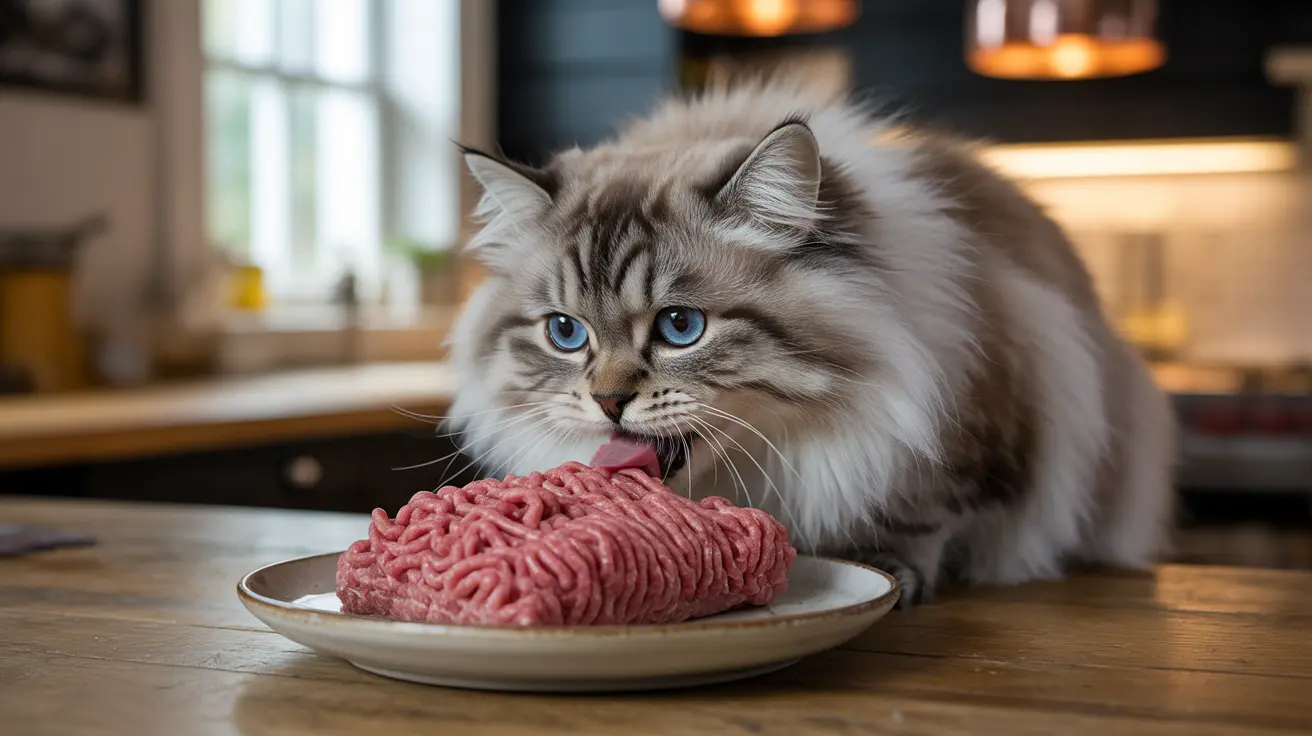When it comes to our feline friends, their dietary needs are uniquely specific. Unlike many other pets, cats are what scientists call "obligate carnivores" - meaning they absolutely must eat meat to survive. This isn't just a preference; it's a biological necessity that shapes everything from their digestive system to their behavior.
In this comprehensive guide, we'll explore why cats are strictly carnivorous, what makes their dietary needs so specific, and why it's crucial for cat owners to understand this fundamental aspect of feline nutrition.
The Biology Behind Cats' Carnivorous Nature
Cats have evolved over millions of years as specialized hunters, developing unique biological adaptations that make them perfectly suited for a meat-based diet. Their entire body, from teeth to tail, is designed to catch, kill, and digest animal prey.
- Sharp, pointed teeth designed for tearing meat
- A short digestive tract optimized for processing animal protein
- Specialized liver function that relies on protein for energy
- Lack of enzymes needed to properly digest plant matter
Essential Nutrients Only Found in Meat
Cats require several vital nutrients that can only be obtained from animal sources. These include:
Taurine
This amino acid is crucial for heart health, vision, and reproduction. While other animals can produce taurine in their bodies, cats must get it directly from meat sources.
Vitamin A
Unlike humans and dogs, cats can't convert beta-carotene from plants into vitamin A. They need pre-formed vitamin A, which is only found in animal tissues.
Arachidonic acid
This essential fatty acid, vital for inflammation response and skin health, is only available from animal sources.
Why Cats Can't Be Vegetarian
The unique metabolic requirements of cats make it impossible for them to thrive on a plant-based diet. Their bodies lack the necessary enzymes to process plant proteins efficiently, and they cannot synthesize certain amino acids that other animals can create from plant materials.
Even well-planned vegetarian diets can lead to severe health issues in cats, including:
- Heart disease
- Vision problems
- Neurological disorders
- Immune system dysfunction
- Reproductive failures
Domestic vs. Wild Cats: Same Nutritional Needs
Whether we're talking about your household pet or a wild tiger, all cats share the same basic nutritional requirements. Domestication hasn't changed their fundamental need for meat-based nutrition. This is why both domestic and wild cats:
- Hunt small prey
- Eat multiple small meals throughout the day
- Prefer fresh meat when available
- Obtain much of their hydration from prey
Feeding Your Cat Properly
Understanding that cats are obligate carnivores should guide how we feed our feline companions. The ideal cat diet should:
- Consist primarily of high-quality animal protein
- Contain moderate amounts of fat
- Include minimal carbohydrates
- Provide adequate moisture content
- Include all essential nutrients in their bio-available forms
Frequently Asked Questions
Are all cats carnivores, or can they eat plant-based foods?
Yes, all cats are obligate carnivores, meaning they must eat meat to survive. While they might nibble on plants occasionally, they cannot derive necessary nutrition from plant-based foods.
What essential nutrients do cats get only from animal-based sources?
Cats must obtain taurine, preformed vitamin A, arachidonic acid, and certain B vitamins exclusively from animal sources. Their bodies cannot synthesize or convert plant-based alternatives.
Why can't cats survive on vegetarian or vegan diets?
Cats lack the enzymatic pathways to process plant-based nutrients effectively and cannot synthesize certain essential compounds that must come from meat sources. Attempting to feed cats a vegetarian diet can lead to severe health problems.
How does a cat's digestive system differ from a dog's for processing meat?
Cats have shorter digestive tracts specifically designed for processing meat, lack amylase for breaking down carbohydrates, and have different enzyme systems than dogs, who are omnivores.
What are the health risks if my cat eats a high-carbohydrate or plant-based diet?
Cats on high-carbohydrate or plant-based diets risk developing serious health issues including heart disease, blindness, neurological problems, and severe nutritional deficiencies.
Understanding that cats are obligate carnivores is crucial for providing them with proper nutrition. By respecting their natural dietary needs, we can help ensure our feline companions live long, healthy lives. Remember to always consult with your veterinarian about the best diet choices for your specific cat's needs.






